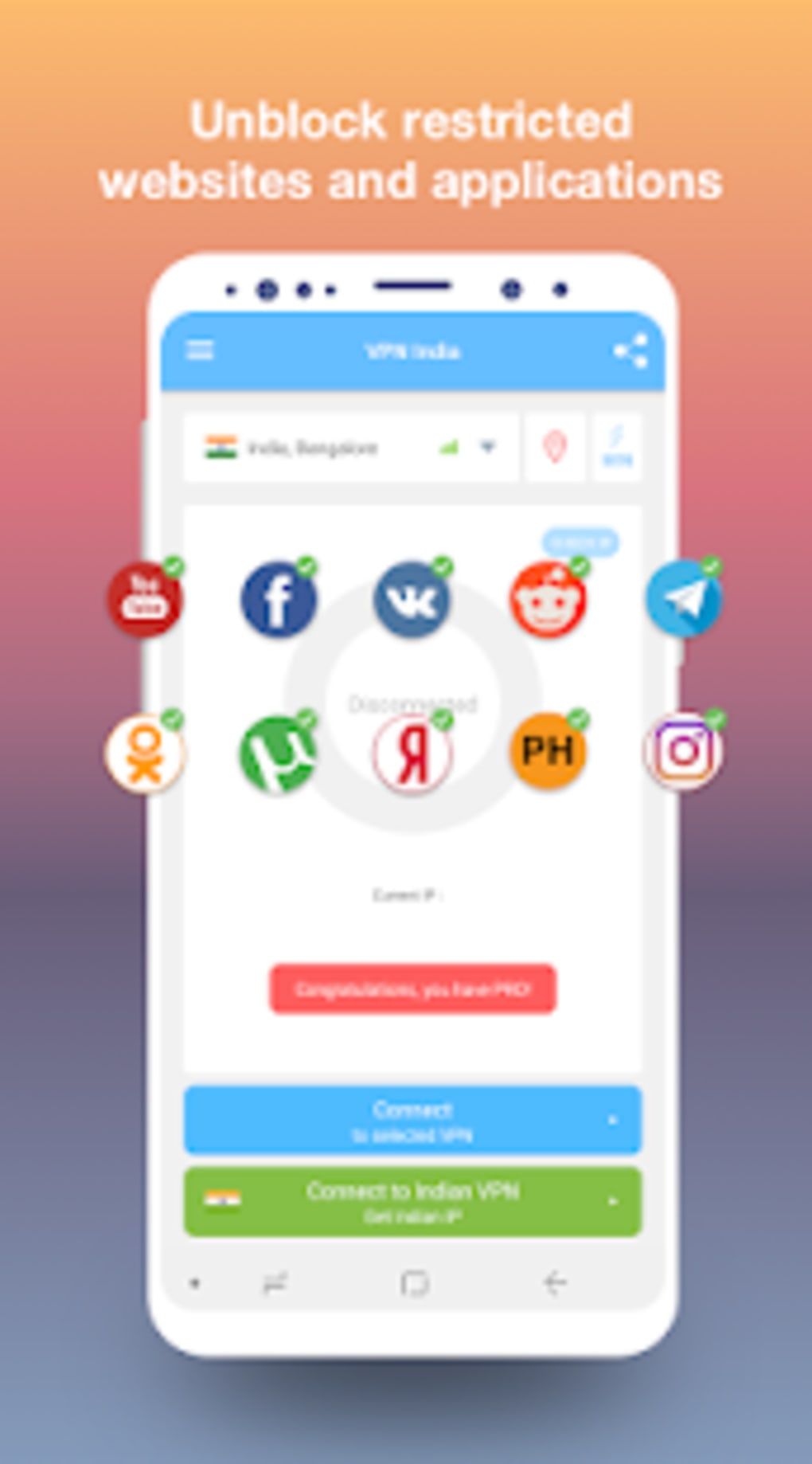
India’s surveillance system is extensive and its VPN data rule program forces VPNs and cloud providers to store sensitive user data for a minimum of five years. Despite pushback from digital rights activists, the government keeps expanding its powers and Big Tech companies keep giving in. The Indian government regularly bans websites and social media accounts and has resorted to hundreds of internet blackouts to prevent the spread of information in the past. It also pressures companies into handing over peoples' information to law enforcement when requested.

These rules force companies to censor content according to whatever the administration deems illicit or harmful to public order. In 2021, the Indian government introduced new legislation known as Information Technology (Intermediary Guidelines and Digital Media Ethics Code) Rules. This VPN protocol only changes your IP address and doesn't put all of your online activity through an encrypted tunnel, offering you a fast, but not totally secure connection.Over the last few years, India's administration has handed itself increasingly extreme authoritarian powers of control over the internet. Unlike our other VPN protocols, SOCKS5 is used through your favorite site-to-site transfer client instead of the PrivadoVPN app.

You can get the best balance of speed and security with WireGuard®, which uses advanced encryption and information handling to keep your VPN connection safe while still getting great transfer rates. If you are looking to watch online video, access gaming servers, or download content, then this is the VPN protocol for you. IKEv2 will still protect your online privacy and provide you with high levels of security, but this VPN encryption protocol is geared more toward speed. This is the choice of IPSec experts around the world. With OpenVPN you may experience slower connection speeds, but the trade-off is military-grade encryption. If you care more about privacy than speed, OpenVPN is the strongest VPN encryption protocol.


 0 kommentar(er)
0 kommentar(er)
